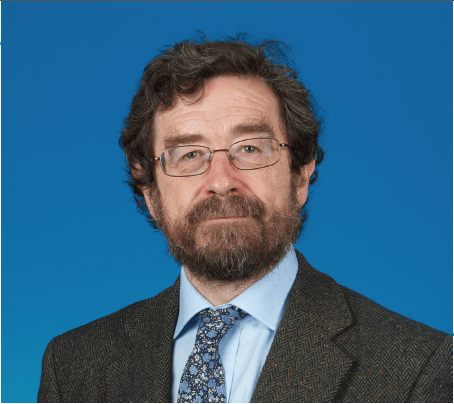Turning Interest Into Action

Part of Professor John FitzGerald’s task as Chair of the Climate Change Advisory Council is to explain the issues around climate change to a wider audience. His scariest audience so far has been 6th class pupils at Harold’s Cross National School, he recalls.
“I was there for a photocall and the minister was late so the teacher asked me to talk to the class. Not having anything prepared, I was a bit intimidated at first. The children were so well informed, so engaged and so knowledgeable.”
Young people such as Swedish teenager Greta Thunberg who inspired school strikes worldwide against global warming have captured the public’s imagination in recent months. In Ireland, young people took part in the Extinction Rebellion protest in Dublin on Good Friday and school children feature regularly on news reports for their efforts to make society more environmentally aware.
“As the problems of climate change will steadily grow over the coming century they are likely to be more serious for our children, and even more serious for our grandchildren, than they are for us. Thus it is really important to listen to the views of the younger generation who will be most affected,” says FitzGerald.
“Unfortunately, younger people are less likely to vote than the grey electorate, so their voice is muted in the political system in the developed world. For this reason it is very important that they are both encouraged to make their voice heard and that they actually do so by participating actively in political life,” he said. “Protests can play an important role in highlighting issues but real change needs the engagement of the political process. It is right that children be educated about the science of climate change and also about the civic society in which they are growing up. However, carrying political campaigns into schools is not appropriate.”
An independent statutory body established under the Climate Action and Low Carbon Development Act 2015, the Climate Change Advisory Council’s role is to review national climate policy and advise government on how Ireland can move to a low carbon, climate resilient economy and society by 2050.
Its latest annual review, published last July, stated that Ireland is not on track to meet its 2020 or 2030 targets, or to decarbonise its economy by 2050.
“Ireland’s greenhouse gas emissions increased again in 2016, with the projections to 2035 showing that we are completely off course in addressing the challenge of climate change,” FitzGerald said at the launch of the review
Frustrated that there has been very little development of climate change policy since the council started,
FitzGerald sees the Oireachtas Joint Committee on Climate Action report published at the end of March as a significant step forward.
“The fact that five parties agreed on a carbon tax gives reasonable assurance that this key measure will be implemented in this Dáil and the next,” he says. “The balanced summary on agriculture was also helpful, emphasising land use issues and diversification. The proposal on a carbon-budget approach to managing our future emissions sounds sensible.”
The report calls for new legislation which will set ambitious climate and renewable electricity targets, and which will require five-year carbon budgets to be devised.
In reaction to this, FitzGerald says: “I don’t think there is time for this Dáil to legislate and with any new Dáil it can take a year before it is fully up and running with new legislation. Thus I think the issues that require legislative change will be for a future Climate Change Action Council – our remit runs out at the beginning of 2021.”
An adjunct professor in Economics at Trinity College Dublin and former research professor at the Economic and Social Research Institute, FitzGerald is currently also a member of the Commission of the Central Bank of Ireland.
“One of the things I’ve learned after 40 years is that as an economist your research influences outcomes once in every three or four times. One of my disappointments has been that I have published about 20 papers since 1991 on the need for a carbon tax if we want to take climate change seriously. I have been like a broken record on how important it is to get the price of carbon tax right,” he says.
[simple-author-box]
